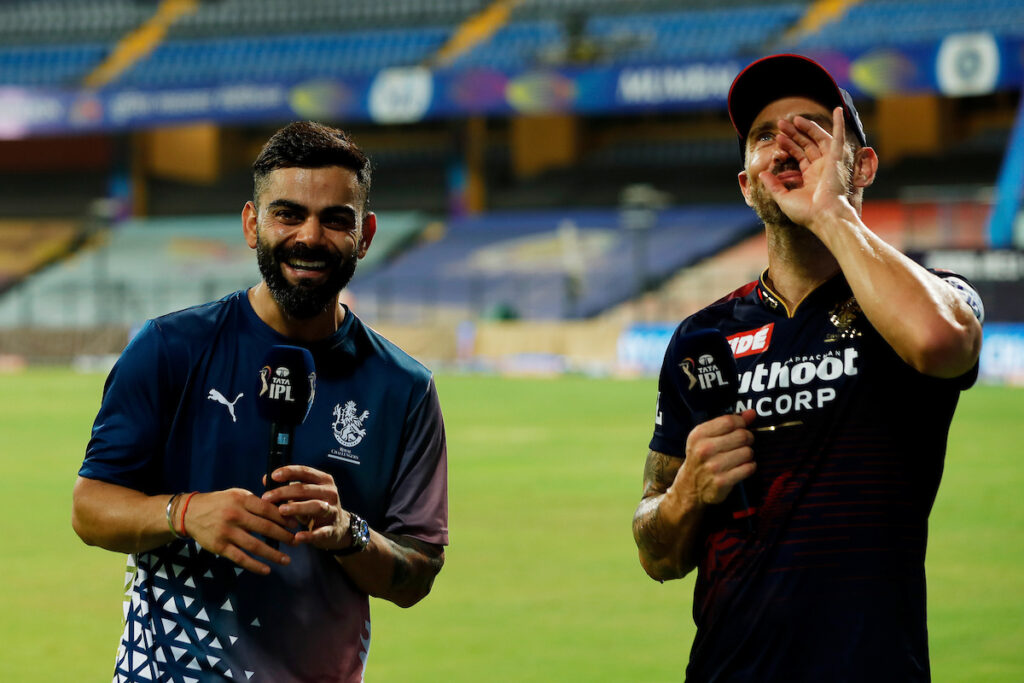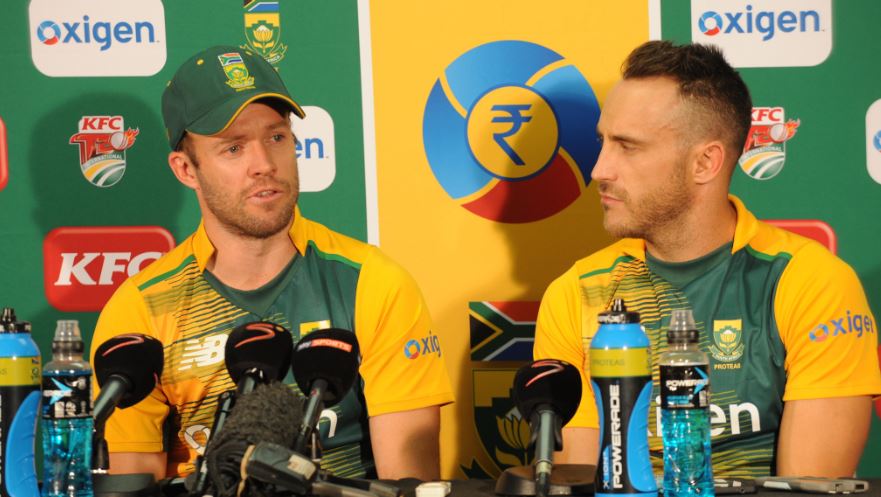The bond between the childhood mates was strained when de Villers retired in 2018 and worsened when du Plessis denied him re-entry in 2019.
In his book Faf: Through Fire, the former South African captain described David Warner as a “bully” and acknowledged feeling “jealous” of his teammate AB de Villiers. Du Plessis singled up one particular instance that caused him to refer to Australia’s Warner as a “bully”.
The players’ tunnel in Durban grew increasingly hostile during the first of Australia’s four Test matches against the Proteas under du Plessis in 2018. As players ascended the stairway to their dressing rooms during the tea break, Quinton de Kock and Warner got into a heated argument, according to CCTV footage from the tunnel at Kingsmead.
The video depicts Warner yelling at De Kock, who departed the field as South Africa’s not-out batter at the same time as the Australians, while being restrained by Australia batsman Usman Khawaja and spin bowler Nathan Lyon.
Du Plessis, who was only wearing a towel, went to check when he heard noises outside the dressing room door while cooling off in the shower. Du Plessis claimed in his book that when he emerged in that condition, the situation became more manageable and further issues were avoided.
The Australian ball-tampering controversy, which resulted in the suspension of three Australian cricketers, would make the series notorious. Intriguingly, this series would represent Faf’s captaincy career’s high point.
Snippets from du Plessis’ book had earlier revealed a feeling of sympathy for the likes of Steve Smith and Cameron Bancroft, who were banned for a year along with David Warner for their involvement in the ‘Sandpapergate’ incident, calling the punishment ‘harsh’.
He had also empathised with Bancroft for the derailing of the opener’s career but refused to show any compassion for Warner, subtly hinting that the southpaw was the mastermind behind the ball-tampering scandal and that the story involving the ‘leadership group’ that was floated was merely a cover-up.

The current Royal Challengers Bangalore captain continued by discussing his friendship with former RCB and Proteas mainstay de Villiers, who he had known since infancy but with whom he no longer had a close relationship. Du Plessis claimed in his book that he frequently felt envious of AB de Villiers but that after “learning to accept this, he was able to find comfort in his own journey.”
When de Villiers announced his retirement, their bond became tense, further destabilising a squad that had already lost Graeme Smith, Jacques Kallis, and Morne Morkel. The relationship was further strained in 2019 before the World Cup when De Villiers requested re-entry but Du Plessis turned him down.
In the book, Du Plessis also discussed some of his own contentious on-field incidents, such as “Zipgate,” in which he was found guilty of touching the ball against Pakistan in 2013 and “Mintgate,” in which he applied mint-related residue and saliva to the ball in 2016 against Australia.
In addition, he mentioned the 2011 World Cup quarterfinals, where he joined ADB in the middle to pursue a 222-run target set by New Zealand. He asked for a single off the second delivery, which ultimately lost de Villiers his wicket and South Africa the game. After pushing Kyle Mills, he was penalised 50% of his match money and thereafter faced death threats that he was to blame for de Villiers’ runout.
“I’m not perfect. I’ve never claimed to be. I’ve never been the most talented player.The New Zealand players were all over me. They started calling me a choker. I held a lot of resentment towards them for a long time ”
du Plessis concluded.


